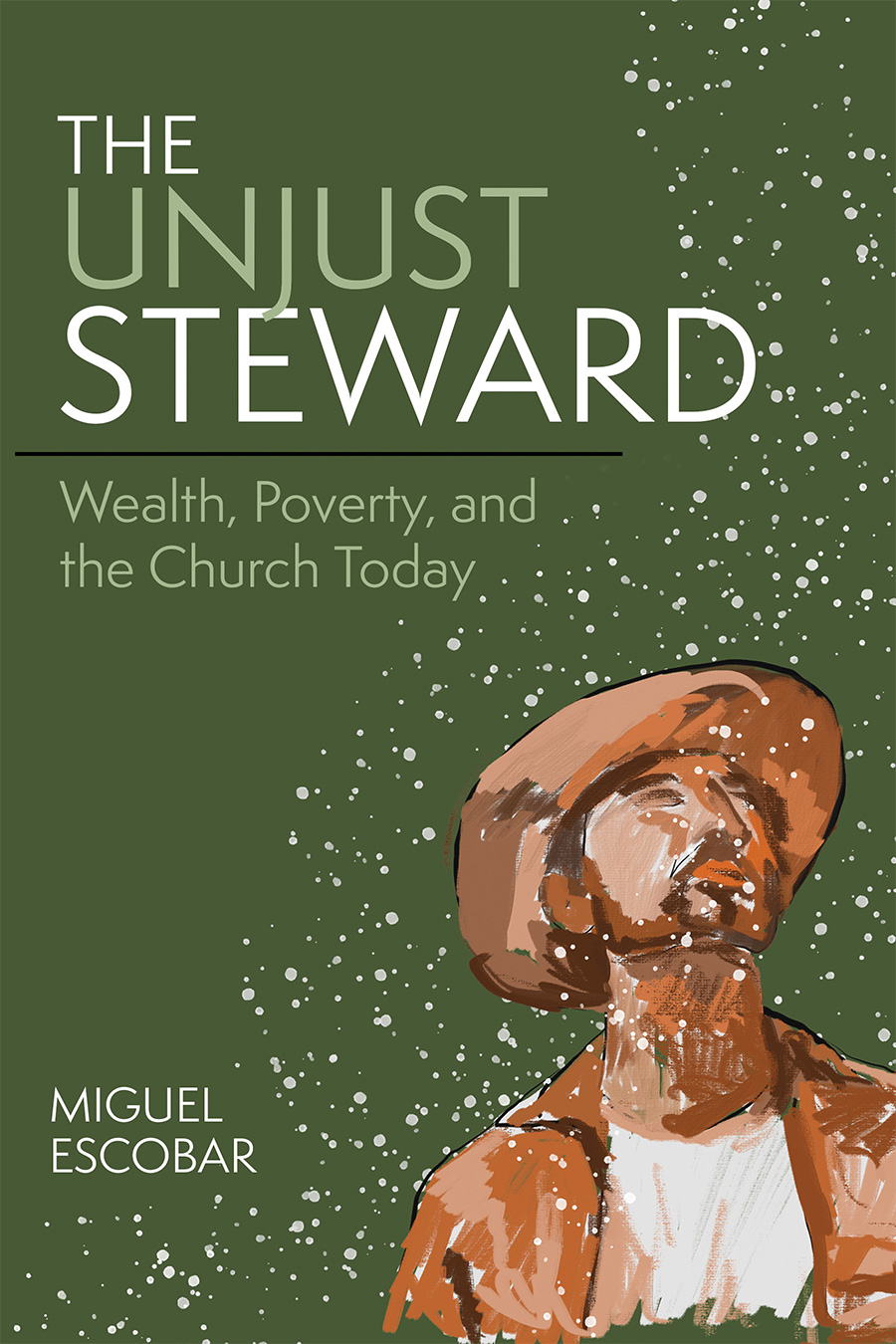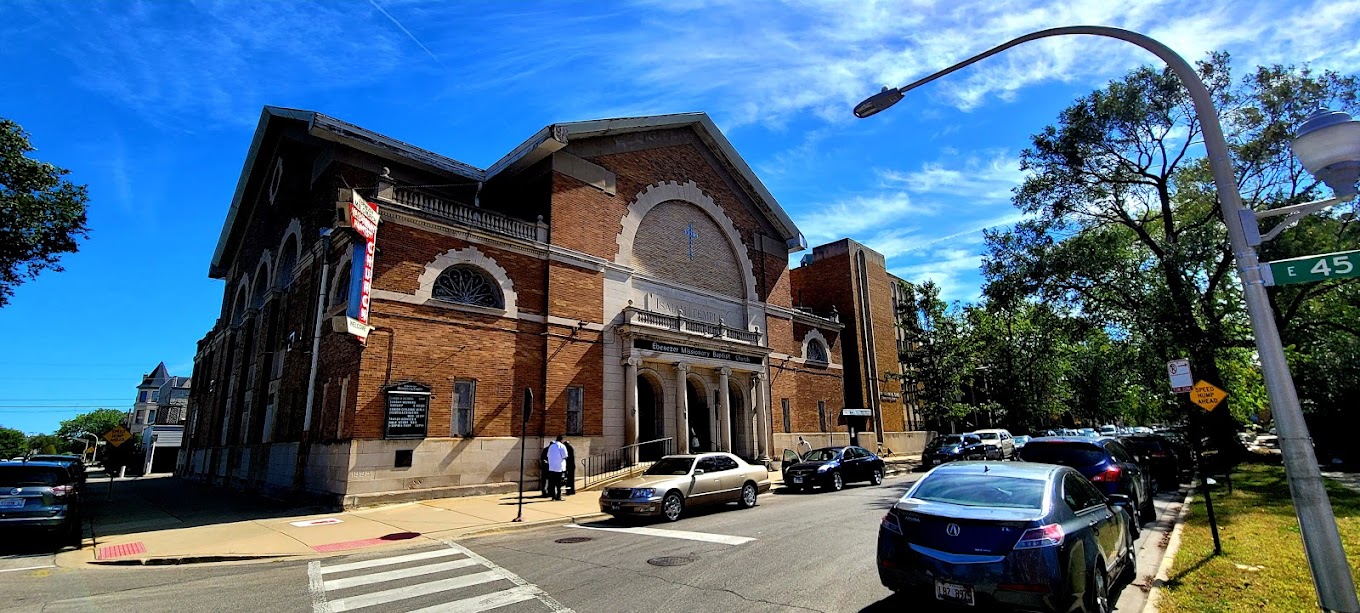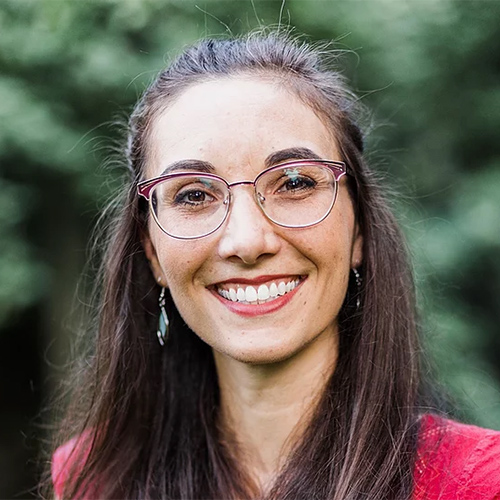For more than a decade, Miguel Escobar had considered writing a book on the way churches talk about money and the issues of poverty and wealth. When the pandemic hit, the effects in its early days fell hard on New York City, where he lives.
What he saw focused his thoughts.
“I would go on long walks, me and my dog, and I’d pass the morgue trucks. You’d see lines of people waiting for food. All the stores closed down,” Escobar said. “I think later, The New York Times reported 40% of the people from the wealthiest ZIP codes just left the city. The wealth disparities and who died and which boroughs and hospitals people were dying in — [money was] the difference.
“That really focused me, because then the follow-up question was, where’s the church? And what does the church have to say about issues of wealth and poverty in a time of natural disaster or pandemic?”

Escobar, the executive director of the Episcopal Divinity School at Union Theological Seminary, spent the ensuing months writing “The Unjust Steward: Wealth, Poverty and the Church Today.” The book was published in September.
He spoke about it with Faith & Leadership’s Aleta Payne. The following is an edited transcript.
Faith & Leadership: You draw the book’s title from what you acknowledge is a very complex parable. There’s a lot about poverty and wealth and justice in the Bible. Why choose that one?
Miguel Escobar: I used to work for the Episcopal Church Foundation, and in leadership development particularly. I used to do presentations around the country on stewardship and annual stewardship practices. I always was running up into this problem of trying to find biblical stories and grounding for our stewardship practices.
They’re there, but it’s interesting that many of the biblical references never reference stewards. And the ones that do, the Gospel stories at least, are negative. Many of the Gospel stories about stewards actually present the steward as a foil to Jesus. The steward at the beginning of the parable of the unjust steward is engaged in exploitation. He and the landowner are extracting wealth from the workers who are in debt bondage.

At the wedding in Cana, the steward is the one who says, “You should really serve the good wine first, not last.”
In each case, Jesus is presented as the foil, or the way the kingdom of God is presented is the opposite. The unjust steward finds his salvation, his safety, by actually releasing wealth, by taking his master’s wealth and releasing it.
It was very hard as a workshop leader to find positive references to wealth management in the Gospels as the basis for our annual stewardship campaign, and I always just found that very interesting. Then digging into the history of stewardship and realizing, “Wow, Christianity has developed a wealth stewardship tradition that, in some ways, sometimes reverses what the Gospels are actually saying.”
And the second reason is that I was struck by how many times the parable of the unjust steward is referenced. Certainly, the parable about the eye of the needle is also referenced, but I was really surprised Basil of Caesarea talks about it, Clement of Alexandria talks about it, Augustine — all of them are wrestling with the parable of the unjust steward and reinterpreting it to serve their needs.
It just became a theme over the course of all these writings — how have different thinkers interpreted this really complex parable?
F&L: It is currently stewardship season for a lot of churches. What about the pastor who may understand what you are saying biblically but, in dealing with the demands of a church, may find this more complicated?
ME: I can try to answer that as someone who’s helping lead an institution, because that was also always at the back of my mind.
At the end of the parable of the unjust steward, Jesus says, “All of us have to decide” — I’m paraphrasing, but — “all of us have to decide what kind of servants we’re going to be. Either we are going to be servants of God or we’re servants of wealth.” Which I think speaks to the deeper question of where our loyalty lies. What do we place as most important?
The thinker that actually helped me, at least, really frame this best is Basil of Caesarea. he says to, again, the wealthy, “You all are stewards of wealth. What we need you to be are stewards of humanity.” That’s a critical turning point — [for] institutional leaders, including myself, our churches, to start to think about the assets and resources that have been given to us as the things that we’re supposed to steward not for institutional furtherance but for humanity, for our community.
If our goal becomes how do we turn these buildings, this endowment from God knows where, what terrible wealth that came from, if we’re supposed to turn unrighteous mammon outward toward the alleviation of debt, toward the making of the lives of people who are marginalized or vulnerable easier, then I think we’re fulfilling that question; we’re being servants of God as opposed to servants of our own wealth.
I don’t think the shift turns around overnight, but I think that’s the question that I find myself wrestling with: “OK, I work for an institution. It has an endowment; it has assets. And now the question is, How do we take these assets and use them to establish justice, and for the right reasons?”
F&L: At one point, you say debt remittance is one of the holiest uses of wealth. One of the ongoing issues at the moment is student debt relief. Could you speak to some of those contemporary issues where you see this aligning?
ME: I would want to begin just by noting the way that debt is talked about in Leviticus 25 and Deuteronomy [15]. There God identifies God’s self as the God of freedom, who liberates Israel from slavery — the memory of Exodus has a moral weight to it. It means that the Israelites are not to engage in predatory lending practices against their fellow Israelites, because usury is a form of economic enslavement. In these texts, it’s very, very clear, to engage in predatory lending is to engage in re-enslavement of people God intended to be free.
When we go then to the New Testament, and you have Jesus, in Luke 6, say, “Yes, lend money, but do not lend with interest,” he’s speaking to a poor community and poor people, saying, “Do not take advantage of one another.” When someone’s down, help them out. Give them a hundred dollars and ask that the hundred dollars come back to you, but this is not the moment that you charge interest to this person.
Similarly, in the unjust steward, we’re describing debt bondage. That’s literally a story of debt bondage, and what the steward does is he releases people. So that goes back to this deep, deep idea within the Old and New Testaments that to free people from debt is to free people from economic enslavement.
I think in the contemporary, recent history, we’ve seen some egregious examples of all sorts of predatory lending practices. There’s payday lending, and there’s advocacy work that needs to be done to cap payday loans. But I would also want to note, there’s a lot of lending that we think is normative that is actually very predatory.
In the aftermath of the 2008 financial crisis, institutions like Wells Fargo … were found and agreed to be recognized as having sent representatives into Black and Latino congregations, actually, to sell these subprime mortgages, for which people were not reading the fine print. Suddenly, they were underwater when the housing crisis took place. And unlike the Old Testament and the New Testament, the moral onus — we put the blame on the people who take those loans, get those mortgages. For whatever reason, we don’t blame the predatory lenders. I think a biblical view really says, “This is a form of economic enslavement.”
I live in a neighborhood where there are all sorts of signs that are telling people student loans are not free money. It’s a public education campaign trying to inform people who want their education to be aware of what they’re taking on when they take on student debt, more aware because that too, unfortunately, can be limiting their future and in a really harsh way.
F&L: At one point, you ask, “How would we read the scriptures differently if we took into account that these texts spring forth from a hungry people?” Can you talk about how you hope that might shape people’s perspectives?
ME: I think within Christianity, and this happened in the second century but very much continues today, there’s a spiritualization of the terms “wealth” and “poverty,” “hunger” as hungering for God, “thirst” as thirsting for God. What I hope to somewhat recover is that all of that language is really beautiful, and it’s very meaningful. And when Jesus says, “Blessed are those who are hungry,” let’s just say, “full stop.” Let’s also realize he’s talking about material hunger and people who have a pit in their stomach. Let’s not overallegorize or overly reinterpret that line.
One of the things you see is a tendency to really want to make the poor — references to the materially poor — into the holy poor, reinterpreting the biblical lines as referring to monks and nuns, those who’ve taken a vow of poverty later on. And it’s like, “Well, actually, Jesus was talking about poor people.” And we need to lean into that.
I have never had a day in which I’ve had to worry about a meal. I think reading the Gospels, people who have had to worry about meals read all those references to meals a little differently than I do. It’s hard to enter into that world. It’s more important that we just recognize that and try to hold that person in our minds.
F&L: The framework you’ve chosen for the book is reflections, and you follow them with both discussion questions and action steps. You could have left it without the questions and the steps. Why add those?
ME: For me, theology becomes real when it’s discussed in community. After George Floyd was murdered, my parish had long discussion groups, first about the murder, but then also we would read a book and try to have conversations about it.
I noticed how hard it was on many levels. It was hard to find a chapter that everyone could read. So much theology is not written with these small discussion groups in mind. I intentionally tried to set about writing short chapters in somewhat accessible language that had discussion questions and practical next steps afterward.
The highest use of the book for me would be that a priest photocopies a chapter, brings it to the vestry or a small committee and says, “Hey, I really want us to read this all [together] and have a conversation about it.” And hopefully an idea or two will inform or reframe some of their thinking.
F&L: What haven’t I asked you about that will be important to people coming to your book?
ME: As I mentioned in the book, [I am] the son and grandson of migrant farmworkers. So in a biblical story, I don’t necessarily identify with the landowner or the wealth manager, but I immediately have connection with folks who were in debt bondage or struggling or the day laborers. That was my grandfather.
You’re always rooted in who you are in your history, or try to be, I guess. That definitely informs my reading of all of these folks going forward. I try to write in a scholarly way, but more importantly, I try to write informed reflections, where I’m not apologizing for my perspective. I think that’s a core aspect of the book. It’s where I’m coming from and who I am.
What we need you to be are stewards of humanity.

















